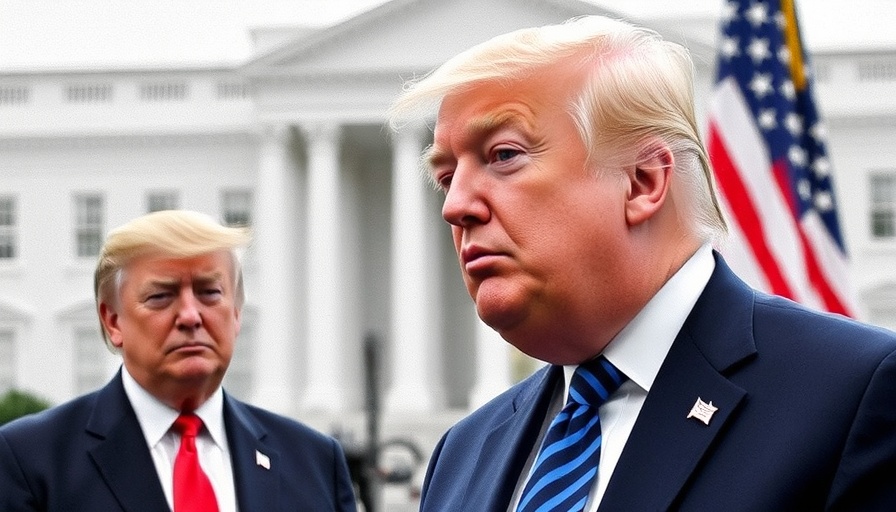
Trump's Covert Mission: Understanding the CIA's New Role in Venezuela
The Trump administration has taken a significant step by authorizing covert operations in Venezuela aimed at ousting Nicolás Maduro, the country’s embattled authoritarian leader. With the announcement came a mix of concern and speculation regarding the implications of such military actions and their potential impact on families and communities, especially those deeply affected by substance abuse issues tied to global drug trafficking.
Political Pressure and Military Buildup
Amidst increasing tensions, the U.S. military is preparing options that could escalate the conflict dramatically, raising fears about a renewed military commitment to regime change in Venezuela. The deployment of 10,000 U.S. troops and multiple naval assets in the Caribbean is meant to assure that the vessel traffic system remains under control while increasing pressure on Maduro's regime.
Substance Abuse: A Family Epidemic
It’s important to view these developments through the lens of the broader public health concern surrounding substance abuse, notably the origin of certain drugs linked to Venezuela. It has been alleged that large quantities of drugs, particularly fentanyl, which have contributed to the opioid crisis in the U.S., are trafficked from this region. As families grapple with addiction within their communities, any narrative involving drug trafficking can feel even more personal and pressing.
Changing Nature of U.S. Military Engagement
The Trump administration's recent military maneuvers mark a notable shift from traditional counter-narcotics strategies to direct, military-driven operations against perceived threats. The response to drug trafficking is increasingly being framed as a national security issue, fundamentally altering the public perception of drug-related governance and involvement with agencies like the CIA.
Covert Operations: An Open-Ended Strategy?
With the CIA now authorized to conduct lethal operations in Venezuela, the potential for unintended consequences grows. These tactics may inadvertently affect innocent civilians and increase the instability of the region. Understanding the scope and potential fallout of such covert actions is critical, as families could find themselves dealing directly with the ramifications of increased violence, leading to more mental health crises and substance abuse issues at home.
Community Response and Resilience
Despite political strife, families must remain vigilant. Engaging in community recovery programs and understanding local drug trends could be beneficial for those affected by substance use. Programs such as Alcoholics Anonymous and Narcotics Anonymous provide supportive environments for families coping with addiction, fostering resilience amidst crises sparked by both domestic and international events.
Empowerment Through Knowledge
As details of U.S. operations in Venezuela unfold, recognizing the interplay between global political dynamics and local substance abuse challenges is crucial. Families should educate themselves about the signs of addiction and recovery pathways available, such as outpatient treatment and family therapy options that can assist in navigating the complex landscape of recovery.
Concluding Thoughts: A Call for Vigilance
The ramifications of the U.S.'s plans in Venezuela extend far beyond political borders, placing additional pressure on communities already vulnerable to substance abuse. Recognition, knowledge, and active community engagement are the first steps towards recovery, empowering families to reclaim their narratives and seek out robust support systems.
For more resources on addiction recovery and intervention services, families can reach out to local recovery programs, hotlines, and community centers to find the help they need during turbulent times.
 Add Row
Add Row  Add
Add 




Write A Comment